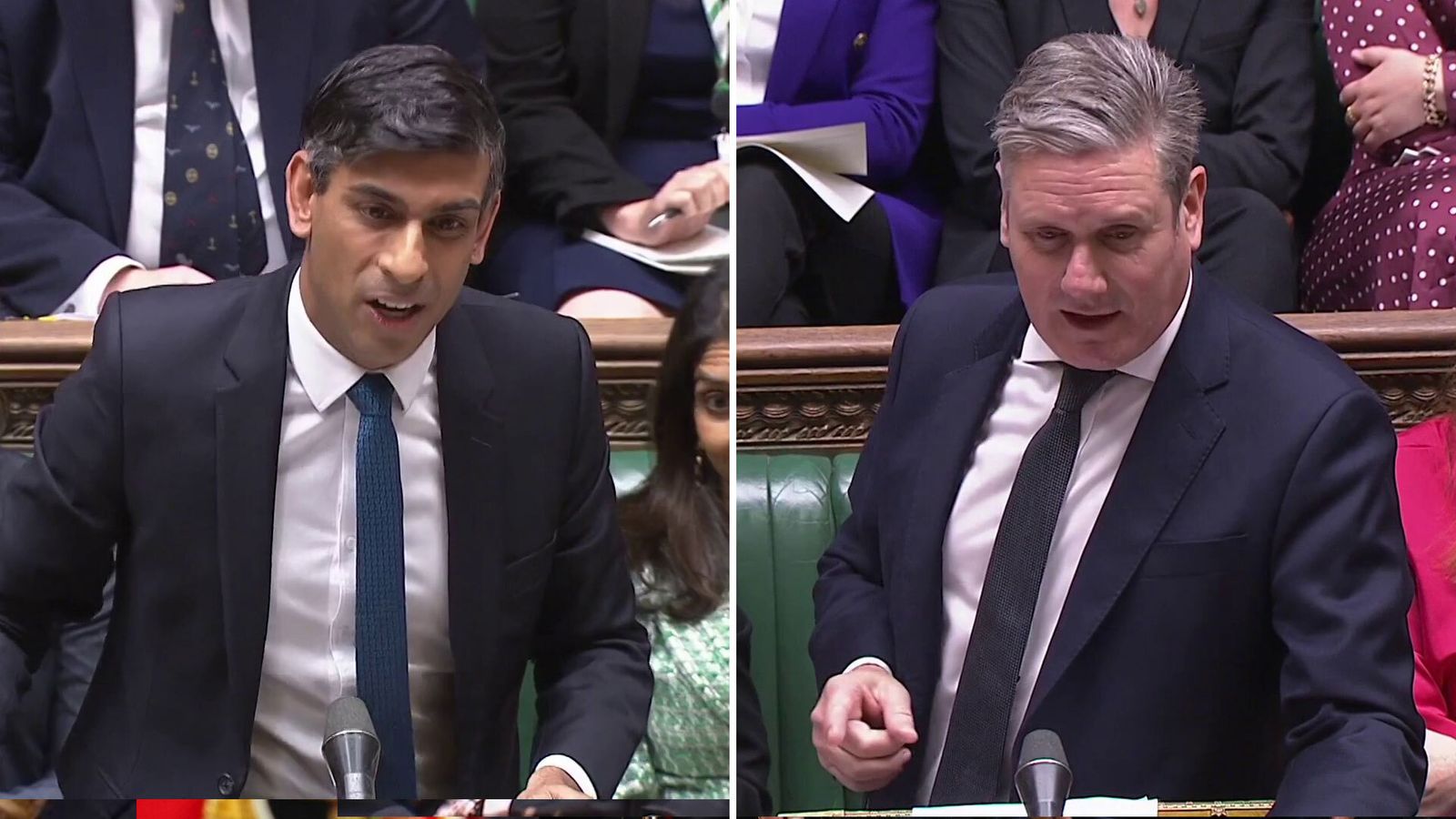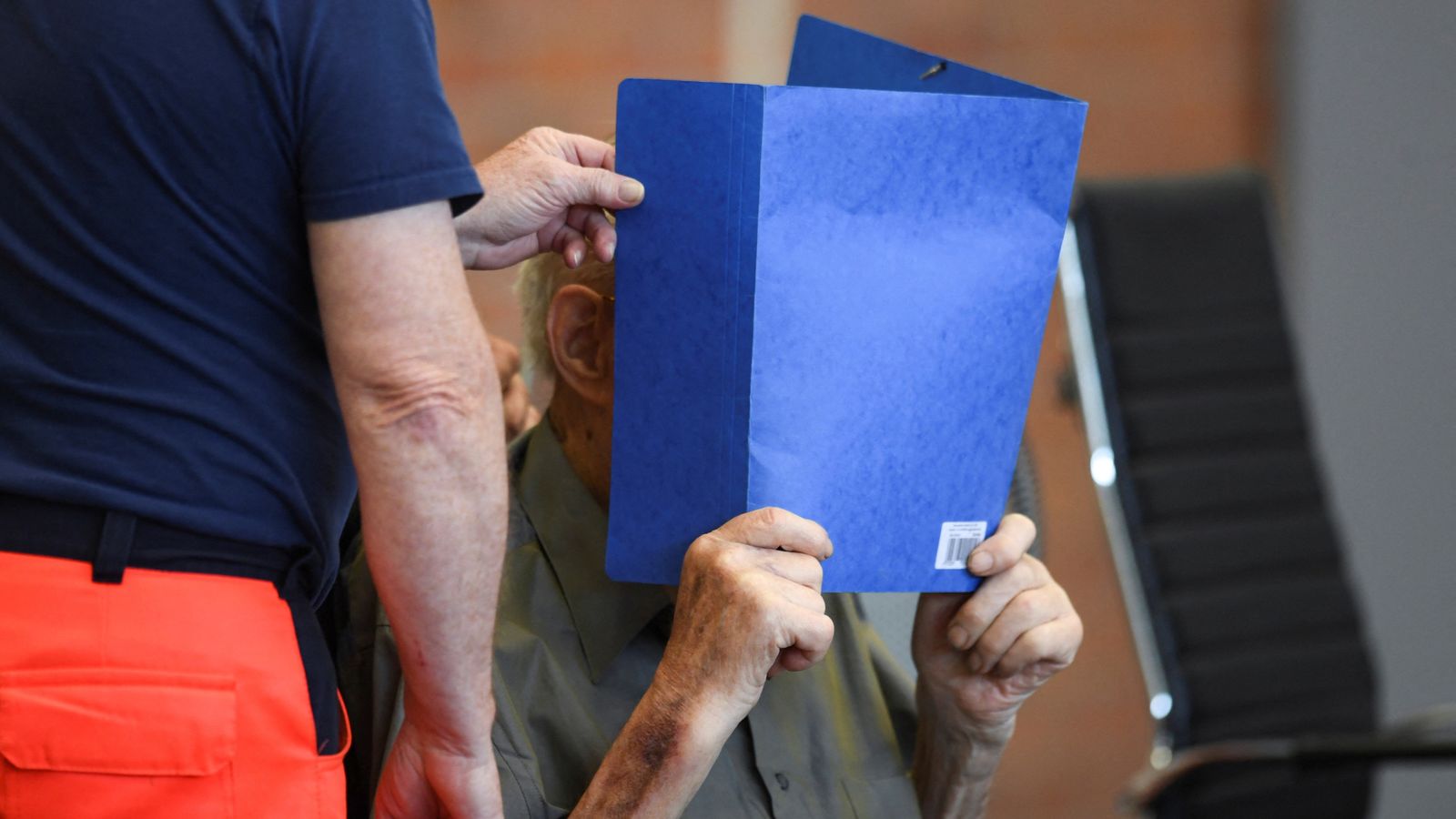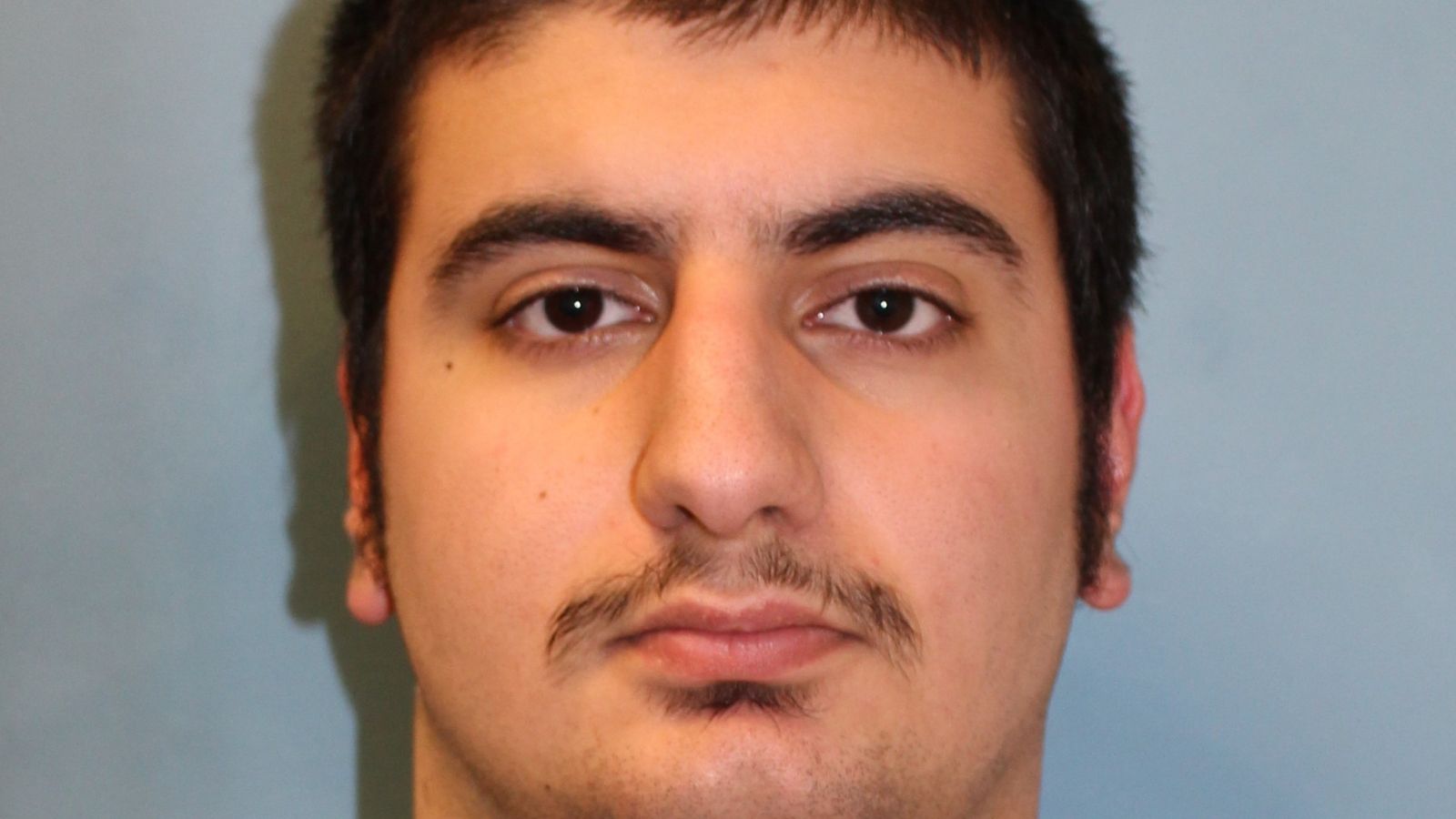Rishi Sunak has blamed doctors and nurses going on strike for longer NHS waiting times.
The prime minister admitted the backlog in the health service has gone up since he took office nine months ago, when a record 7.2 million people were awaiting treatment.
He has made cutting NHS waiting lists one of his top five priorities ahead of the next election.
Politics latest: Sunak quizzed on possibility of reshuffle
But the latest data shows 7.5million patients were waiting to start routine hospital treatment at the end of May, up from 7.42million at the end of April.
Labour leader Sir Keir Starmer challenged the prime minister over the rise at the final PMQs before the summer recess. He asked: “When the prime minister took office nine months ago, the NHS waiting list had 7.2 million people on it, what’s the number today?”
Mr Sunak did not give a figure but replied: “The reason that the NHS waiting lists are higher today than they were then – after actually being stable for the first months as we put in place new initiatives – is very simple, and that’s because the NHS has been disrupted by industrial action.”
NHS ‘at a standstill’ as consultants set to strike for two days
Only 32 of 40 new hospitals promised by Boris Johnson to be built by 2030 – and some may be too small, audit suggests
The NHS is ‘not serving its purpose’ and needs to ‘cooperate with private sector’, says Tony Blair
He insisted the government had a “clear plan which is working” but “industrial action needs to end”.
However the British Medical Association (BMA) – the union behind ongoing junior doctor and consultant strikes – said waiting lists have been rising for the past 13 years.
Labour’s Wes Streeting also disputed the prime minister’s explanation, tweeting: “Now we know why Rishi Sunak refuses to negotiate with NHS staff. He wants the strikes to go ahead, so he can blame doctors and nurses for his failure.”
Green MP Caroline Lucas added: “So Sunak finally admits that #NHS waiting lists *are* going up.
“But let’s be clear, junior doctors & nurses striking for fair & decent pay isn’t the cause of our NHS in crisis – it’s the symptom of 13 years of Tory Govt underfunding, understaffing & undervaluing it.”
More than half a million hospital appointments have been cancelled due to the wave of NHS strike action which began in December, involving nurses, paramedics, physiotherapists and doctors.
The row comes ahead of a 48-hour strike by hospital consultants starting on Thursday, which NHS leaders have warned will leave routine care “at a standstill”.
This follows the longest period of industrial action in the history of the NHS by junior doctors, which lasted five days from last Thursday to Tuesday morning.
Disruption is expected to continue throughout summer after the BMA rejected the government’s “final offer” of a 6% pay rise, calling the increase “a savage real-terms pay cut”.
During PMQs Mr Sunak said doctors should accept the proposal and called on Sir Keir to back the government’s position.
“On this crucial issue, while his MPs are back on the picket lines, yet again on this issue he simply refuses to take a position,” he said.
However Mr Sunak was then reprimanded by the Speaker of the House, who reminded him the prime minister is the one who should be answering questions.
Sir Keir went onto attack the government’s NHS workforce plan, which he claimed was “nicked” from Labour but not fully costed, and also raised a report which showed the government is on track to break a key promise to build 40 new hospitals by 2030.
The PM insisted: “Not only are we going to deliver on our manifesto commitment to build 40 new hospitals across the country by 2030, we’re not just stopping there, we’re also delivering 100 hospital upgrades across the country and crucially over 100 new community diagnostic centres to speed up treatment for people.”








